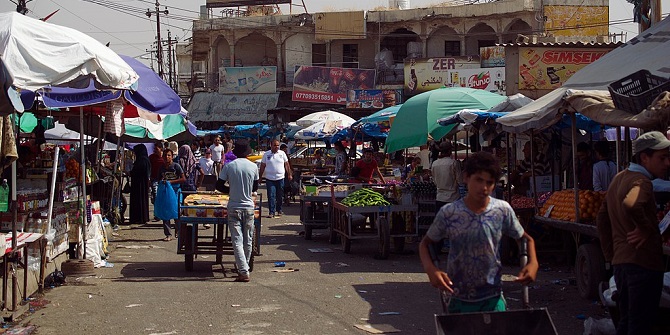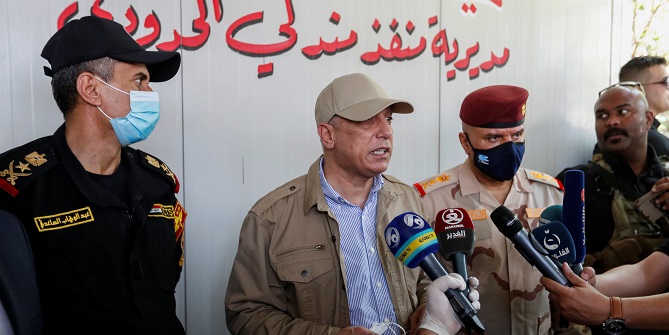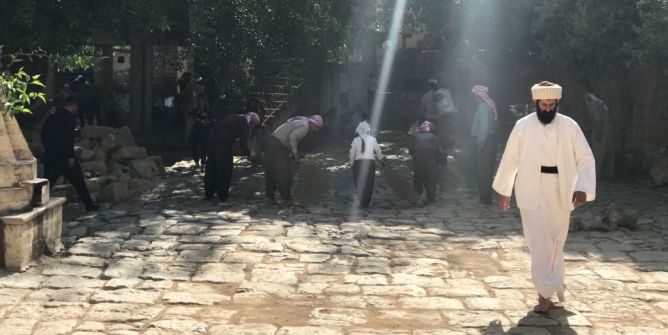by Toby Dodge
This blog was originally published in the LSE Middle East Centre blogs. You can find out more about the Conflict Research Programme’s work in Iraq and the wider Middle East, here.
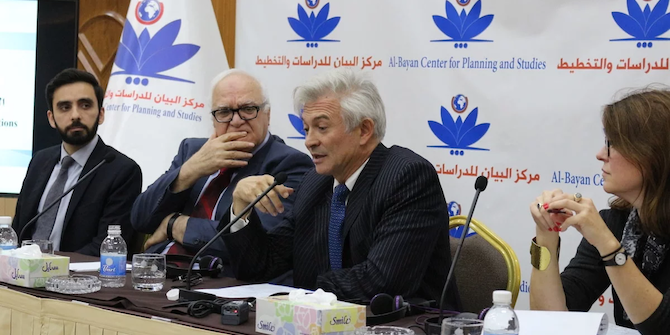
At the start of December 2018, the Conflict Research Programme–Iraq carried out an extended research trip to Baghdad and Ramadi. Toby Dodge and Zeynep Kaya from LSE and Renad Manour, Mac Skelton and Christine van den Toorn from the American University of Iraq, Sulaimani, all took part in the trip. The trip coincided with debates within the Iraqi parliament surrounding the ongoing government formation process, the partial opening of the Green Zone and the 16 Days of Activism Against Gender-based Violence.
The team participated in two research seminars, one at Al-Bayan Center for Planning and Studies in Baghdad and the other at the Center for Strategic and Security Studies at Anbar University, Ramadi.
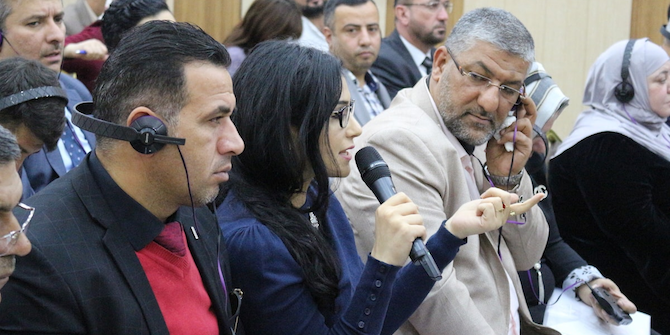
The event at Al-Bayan focused on the challenges to political and economic reform in Iraq. The first session dealt with the aftermath of the national elections and the ongoing process of government formation, discussing how these two events impacted on one of the new administration’s central tasks of tackling corruption. The second session examined Iraq’s current economic status and policies designed to reform the public sector. The third looked at the challenges facing women’s rights, exploring structural inequalities that lead to gender-based violence and affect women’s political and societal representation.
Researchers from the CRP–Iraq team, Toby Dodge, Zeynep Kaya, Renad Mansour and Christine van den Toorn all presented papers alongside Sajad Jiyad and Ali Al-Mawlawi from Al-Bayan Center. CRP–Iraq and Bayan researchers were joined by a number of other presenters, including Ambassador Ramon Blecua, Head of the European Union delegation to Iraq, Hanaa Edwar, General Secretary of Iraqi Al-Amal Association, Hana Hammoud, the Public Aid Organisation, Ghazwan Rafiq, an expert on anti-corruption strategies and Dr Mudher Salih, finance advisor to the Prime Minster.
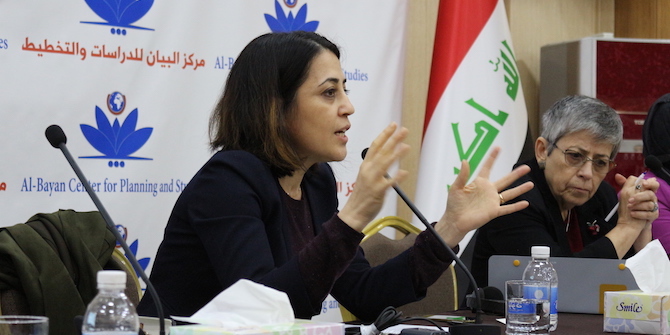
The next day Toby Dodge, Renad Manour and Christine van den Toorn, along with Hisham al-Hashimi, an Iraqi historian and researcher on security and strategic affairs and extremist groups, took part in a symposium, ‘The Future of Iraq after Liberation from Terrorism: The Case of Anbar’, at the Centre of Strategic and Security Studies, University of Anbar. This event focused on the reasons for the rise of Daesh in Anbar, the process of liberation and the struggle for a sustainable peace in Iraq. The President and faculty of Anbar University engaged in detailed discussions about the origins of instability in Iraq and the policies needed to politically, socially and economically rebuild the country.
In addition to these two public events, CRP–Iraq researchers carried out a number of interviews with senior politicians and policy makers. These included meeting with the President of Iraq, His Excellency Barham Salih, leading opposition politician, Jasim al-Hilfi and a number of other senior figures from across the spectrum of Iraqi politics. Zeynep Kaya visited the headquarters of Iraqi Al-Amal Association and met with Hanaa Edwar, Al-Amal’s Chairperson, Hana Hamood, Director of Public Aid Organisation and Amal Kabashi, Coordinator of the Iraqi Women’s Network. The discussion focused on the persistence of patriarchal norms in the Iraqi legal system and obstacles for the implementation of non-discriminatory laws and rules. The CRP–Iraq team will carry out a large-scale six-site research project in collaboration with these organisations to investigate this issue.
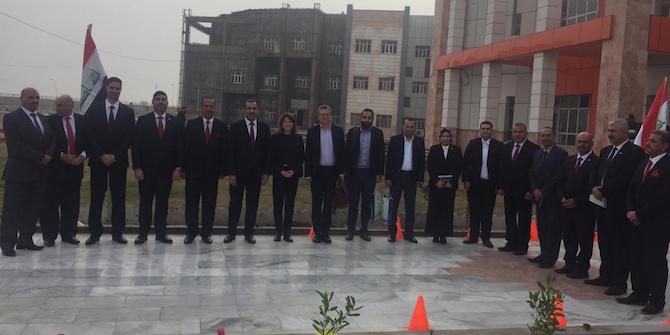
The trip was a great opportunity for the team to deepen their understanding of the political, security-related and gendered contexts on the ground and receive insights from individuals directly involved in these processes. The CRP–Iraq team would like to thank everyone they met for their frank and candid discussions, but also for the great warmth and hospitality with which they were greeted.
Note: The CRP blogs gives the views of the author, not the position of the Conflict Research Programme, the London School of Economics and Political Science, or the UK Government.



